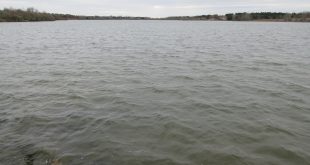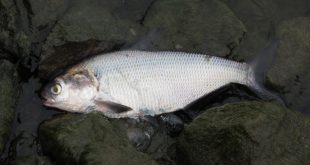LINCOLN, Neb. – The Nebraska Game and Parks Commission is giving young anglers in eastern Nebraska an opportunity to catch some “bonus-sized” channel catfish. Game and Parks on Aug. 14 stocked catfish ranging from 2 to 10 pounds in three lakes. There were 270 stocked in Omaha’s Wehrspann Lake, 50 in Lincoln’s Bowling Lake, and 50 in Papillion’s Lake Halleck. “There are very limited numbers of fish this large that can be produced in Nebraska state fish hatcheries, not nearly …
Read More »Wehrspann Reservoir Shad Removal, Two Days Later
Lord knows the recent fisheries management work at Wehrspann Reservoir in west Omaha has been THE topic of discussion this week. I want to add this update. . . . Our field biologists that did the treatment went back today to see how things looked. As you can imagine they discovered hundreds of thousands of dead shad. How many? I cannot tell you an exact number or even an estimate. But, there are photos floating around the internet and here …
Read More »Gizzard Shad Removal from Wehrspann Reservoir
I wanted to blog about this today, waited for the news release to be published, and now am finally getting around to it after answering questions about it all day long! Gizzard shad targeted for removal from Wehrspann Lake LINCOLN – The chemical rotenone has been applied at Omaha’s Wehrspann Lake in order to remove gizzard shad. Gizzard shad are susceptible to a low dose of rotenone while fish such as largemouth bass, bluegill, channel catfish and crappie are less …
Read More »Gizzard shad targeted for removal from Wehrspann Lake
LINCOLN – The chemical rotenone has been applied at Omaha’s Wehrspann Lake in order to remove gizzard shad. Gizzard shad are susceptible to a low dose of rotenone while fish such as largemouth bass, bluegill, channel catfish and crappie are less affected. Low dosages of rotenone are done at low water temperatures to increase its effectiveness on shad and lower impacts on nontarget species. “Gizzard shad are targeted for removal because they are a detrimental species in small reservoirs such …
Read More » Nebraskaland Magazine
Nebraskaland Magazine


